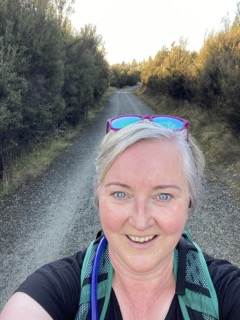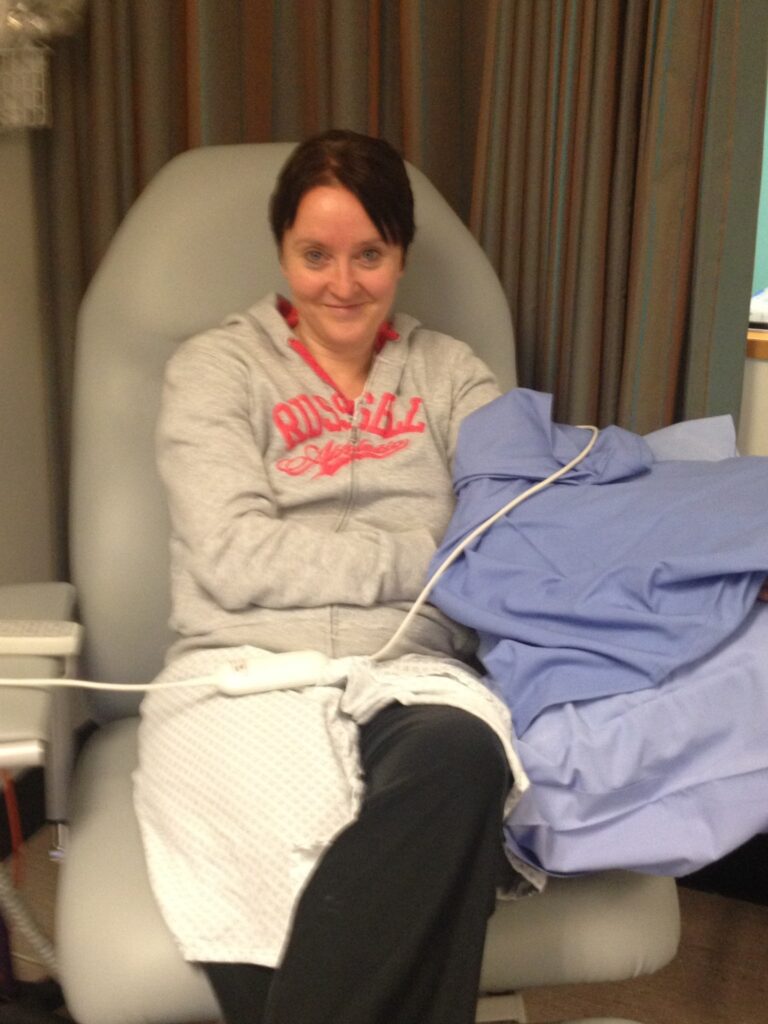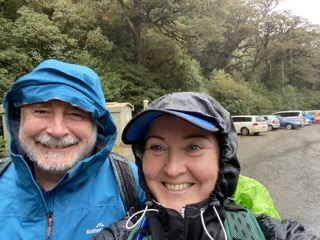Exercise has always been a massive part of Melissa Bell’s life, but after receiving a breast cancer diagnosis, her motivation around moving her body shifted.
“I used to run half marathons, and it was very cardio-intensive [as well as] a lot more ambitious and goal-driven,” Bell tells Women’s Agenda, adding that from the point of her diagnosis with Stage 3 ER+PR+HER2 breast cancer in 2013, “exercise meant something different” to her.
“It became [more about] well-being and stress management, using exercise to help with sleep– all of those things became a lot more critical than just kind of having fitness goals. So, it was a lot more holistic,” she says.

This holistic-outlook on exercise, for Bell, came in the sense that she sought out community and nature through movement. She joined a program at Otago University where a group of women with breast cancer all engaged in strength training, as part of their treatment.
I got this opportunity to join a gym with other women in the same position as me, she says, adding that the experience “was profound for me in terms of my health, my outlook and my feelings about my changing body.”
Following her diagnosis, Bell also says she was “drawn to being in nature” and began to walk much more frequently.
“I remember the day I was diagnosed, I went for this huge walk in the bush, and it just brought me this sense of calm. So that’s become a really big part of my life,” she says, adding that being active outdoors helps her with stress management and managing weight gain.

Research has shown that maintaining regular exercise and a balanced diet is crucial for the health of breast cancer patients and for improving outcomes.
Professor Marina Reeves’ research in women with early-stage breast cancer has seen exercise and nutrition improve women’s quality of life, as well as symptoms like fatigue, pain and possibly menopausal symptoms such as hot flushes.
“Metabolic health can also improve which is really important as most women survive their breast cancer but then develop other health problems like heart disease,” Professor Reeves tells Women’s Agenda.
“We are now doing research in women with metastatic breast cancer, where combined exercise and nutrition seem to be important for maintaining muscle mass and physical function, which we know is really important for their quality of life.”
Bell, who was 40-years-old at the time of her breast cancer diagnosis, is now 11 years out from the end of her treatment, and she says her “health is really good”.
“I definitely live the ongoing consequences of treatment, but otherwise, I’m doing well.”

Nutrition was also a key part of Bell’s breast cancer journey. While she wasn’t given much medical information surrounding the importance of good nutrition for breast cancer care, this is something she’d like to see change for other patients moving forward.
“When I asked, I think I was told during treatment, just eat what you want to eat, and don’t be hard on yourself,” Bell says.
And while she can understand where that messaging is coming from, Bell would have liked to have received research-backed nutritional advice on what to be putting in her body to best support her health during and after treatment.
“It’s something that I could control,” Bell says, noting that she wanted her nutrition to help her feel better and support a good quality of life.
While no single food or food group causes or cures cancer, Professor Reeves says “eating a high intake of vegetables, wholegrains, fibre, fish and lean meat and limiting intake of processed, refined or ‘fast’ foods is important”.
She also notes that “what many people don’t realise is that alcohol increases the risk of eight different cancers, including breast cancer.”
Eating an adequate protein intake along with strength or resistance training is also key to maintaining muscle mass, which Professor Reeves says “is important for women with advanced breast cancer, but also all of us, [since] we lose muscle mass as we age.”
Based on her personal experience with breast cancer, Bell’s journey with nutrition and exercise has taught her the importance of taking care of her own wellbeing.
“As women, we often put the care of others before the care of ourselves, and I think that sometimes we can be really hard on ourselves,” says Bell, noting that “when you are diagnosed [with breast cancer] it’s time to stop and put yourself first.”

Bell also says it’s important to consider what your life will look like post-treatment, as this phase is often “a very short period of time”.
“Have a plan for that,” she recommends. “Because [ending treatment] can be very abrupt, and it can be very lonely.”
“It’s really important to go into that time with a plan of how you want your life to be— exercise and nutrition are a part of that, but they’ve got to fit into that bigger picture of what your new life is going to look like,” she says, encouraging other women to “embrace this new you” and “be thoughtful and mindful” of their wellbeing.
Join Breast Cancer Trials Thursday 14th November, from 5-6:30pm (AEST), for a free online Q&A, where leading researchers and women with a history of breast cancer will discuss the role and impact of diet and exercise on breast cancer. The session will be moderated by author and journalist Annabel Crabb. To register click here.

